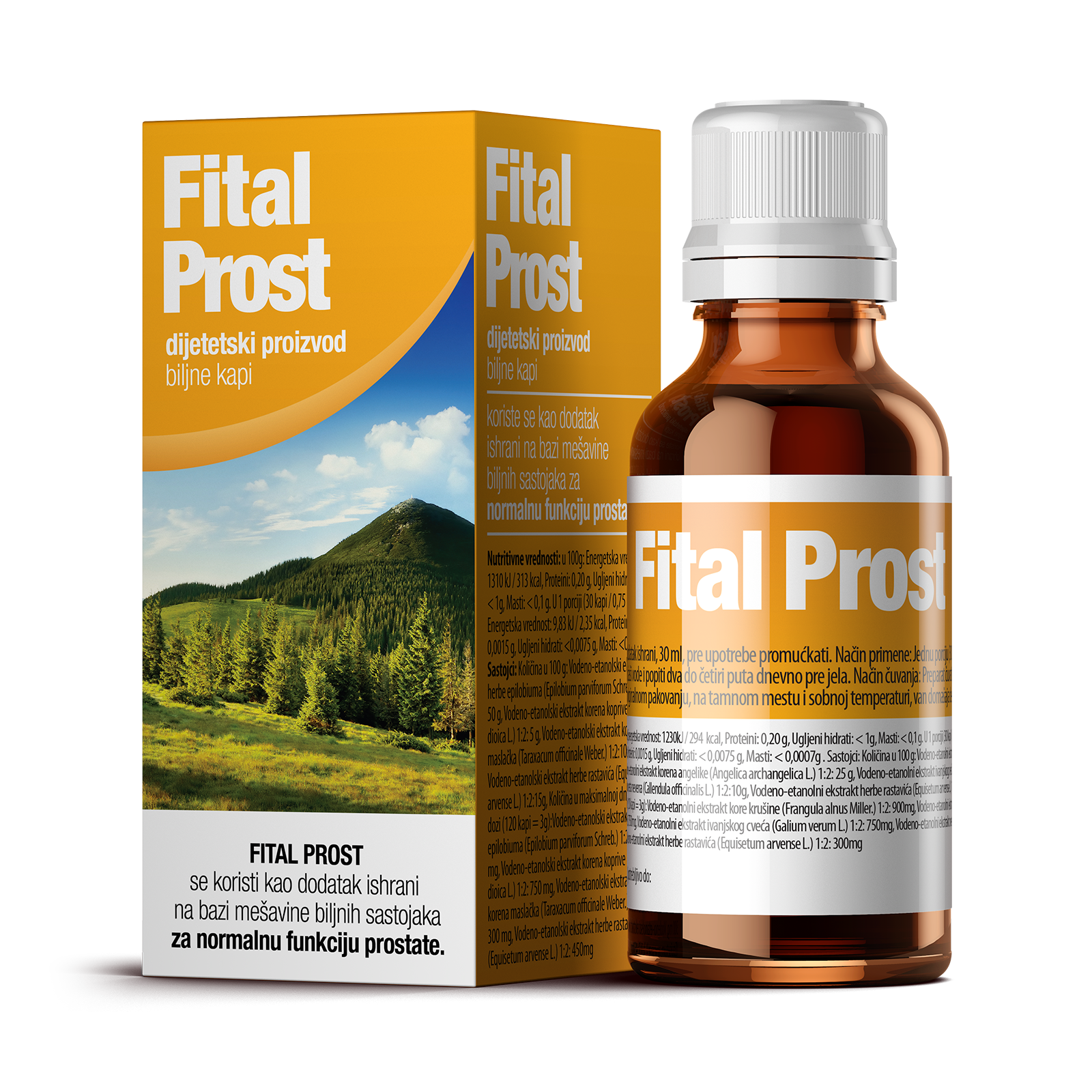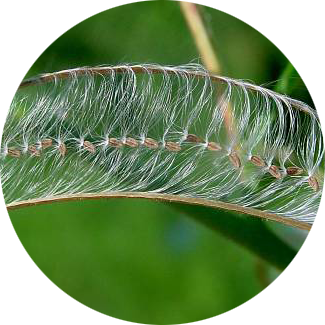(Epilobium parviflorum)
Epilobium parviflorum, small-flowering willow-herb commonly known as the hoary willow-herb or small-flower hairy willow-herb, at first glance is an inconspicuous plant that has surprisingly mighty ingredients. The Committee on Herbal Medicinal Products of the European Medicines Agency has confirmed that this plant relieves the symptoms of the lower urinary tract disorders related to hyperplasia and that it can reduce inflammation and aches. The same committee has confirmed that the plant is safe for use and that there are no reported contraindications.
But this small plant has a much wider range of actions. Its extract has been proven to successfully eliminate the proliferation of colon cancer cells, it inhibits the growth of breast cancer cells; numerous studies have shown that this plant does so with its strong antioxidant, anti-inflammatory and enzyme-inhibitory effect, although it is not precisely defined which of its ingredients has such an effect. It is most probably the synergy of its useful components, such as phytosterols (the most important among them being beta sitosterol), flavonoids (quercetin, myricetin, kaempferol and their glycosides), phenolic acids, catechins, elago-tannins and gallotannins. All these components together, with their strong anti-inflammatory effect, have a very positive effect on benign prostatic hyperplasia. Studies have shown that willow herb has a stronger antioxidant effect than ascorbic acid (vitamin C) or trolox, a water-soluble derivative of vitamin E.
ENLARGED PROSTATE, GREAT DISCOMFORT
The prostate is a small yet very important organ of the male reproductive system. The basic function of this gland is to create a fluid that protects and nourishes the sperm. It is located under the bladder and around it passes the urethra, the duct by which urine is conveyed out of the bladder. In young men, the prostate is the size of a walnut, but later in life it increases – in a forty-year-old man it already reaches the size of an apricot, and in a sixty-year-old man it is the size of a lemon. Its functioning depends on the male sex hormone, testosterone. If the prostate becomes too large it will press on the bladder and the urinary tract and will make it difficult or impossible to urinate easily. Problems that can occur with this gland are a very painful inflammation – prostatitis, an enlarged prostate that presses on the urethra and makes it difficult to urinate – benign prostatic hyperplasia (BPH), and in the worst case – prostate cancer.
In addition to causing severe aches in the prostate area, prostatitis is also the cause of very frequent urination, painful ejaculations and urination, lower back pain, fever and a feeling of general malaise. It can be caused by a bacterial infection, but not necessarily so. Prostatic hyperplasia is less painful, but is accompanied by a huge amount of discomfort: in addition to the urge to urinate frequently, urination is very difficult, the urine stream is weak and intermittent and blood in urine can also occur.
Fortunately, prostatitis and hyperplasia do not increase the risk of prostate cancer; however, the symptoms of cancer and hyperplasia are very similar: laboured urination, incomplete bladder emptying, frequent urination, especially at night, a thin and intermittent urine stream, pain and a burning sensation when urinating, blood in urine or semen, painful ejaculations, aches in the back, hips and the pelvis. The risk of developing cancer increases after the age of 50, especially in men who eat a lot of unhealthy fats and if there is already a history of the disease that runs in the family.
It is probably unnecessary to mention that the quality of life in people suffering from these problems is impaired. That is why every man after the age of 30 should do regular check-ups and monitor the condition of his prostate. Changes in urination – blood in urine, a tingling sensation when urinating and a change in the frequency of urination – should not be ignored, because a neglected condition can cause additional problems, such as kidney infection, or even kidney failure.
WILLOW HERB INFUSION REJUVENATES THE PROSTATE
And this is where this little plant comes into play. Willow herb plant for the prostate works wonders, and it is not only traditional knowledge that is passed from generation to generation, but this knowledge also has strong scientific backing. This plant became popular in Western Europe in the 1930s thanks to the famous Austrian herbalist Maria Treben; it had been traditionally used for a number of disorders: wounds and skin diseases, headaches, abdominal pain, colitis, constipation, internal bleeding, uncontrolled urination… It was well-known that this plant had the antibacterial effect, which has a positive impact on disorders of the urinary system: frequent and painful urination, bladder problems, urinary tract infections and incontinence.
As benign prostatic hyperplasia is an endocrine disorder caused by hormonal imbalance associated with ageing and increased oxidative damage, the strong antioxidant effect and anti-androgenic effect of this plant are powerful weapons for both prevention and remediation of hyperplasia. It is so powerful that it has been proven even to inhibit the proliferation of prostate cancer cells, i.e. it causes apoptosis (programmed cell death) of these harmful cells.
One of the tannin components of willow herb, oenothein B, is responsible for inhibiting the enzymes that are the main cause of prostate cancer. That is why middle-aged men should consume willow herb infusion daily. Today, small-flowering willow herb can also be taken in the form of an extract (drops) or a supplement in the form of capsules, which makes it easy to consume; this also increases its efficacy because the ingredients are more concentrated. Whether it is consumed as an infusion, extract or capsules – whichever form we choose – we will not suffer any harm, but will only improve the condition of our body and improve health, reduce pain, reduce inflammation and prevent diseases, especially the urinary ones. This natural, folk remedy can be used as prevention or treatment in the recommended doses indefinitely without any harmful effects, and can be safely combined with prescribed therapy.
WILLOW HERB FOR PROSTATE AND A HEALTHY LIFESTYLE
In addition to regular medical check-ups, prevention is necessary. Today, it is known that excess fat negatively affects hormonal balance, while insufficient physical activity is a trigger for many disorders, not only those related to the prostate, but also to cardiovascular and metabolic disorders. A controlled diet rich in vitamins, fibres and healthy fats, physical activity and intake of sufficient amounts of fluids, especially water, are the best things you can do for your urinary tract. And if we include small-flowering willow herb in prevention, we have provided ourselves with a healthy prostate and more time to enjoy life.
Small-flowering willow herb is one of five plants that are ingredients of the natural herbal preparation Fital Prost. These drops, in a formula recommended by eminent world experts, have bacteriostatic, bactericidal and diuretic effects; they eliminate toxins, harmful metabolites and free radicals. Fital Prost increases vitality of the prostate, facilitates and reduces the frequency of urination and protects the entire urinary tract. Regular use of these drops prevents big and painful problems. Fital Prost and small-flowering willow herb are great champions of the prostate free from inflammation and a better quality of life.

